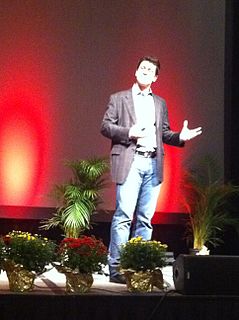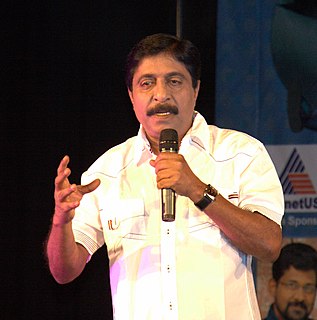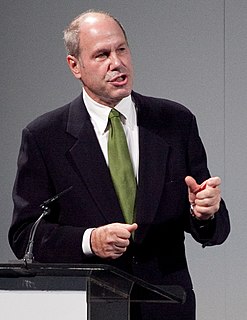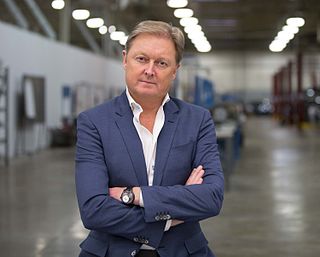A Quote by Dan Heath
Take a company like GM. For years, people were warning its execs that the company was too dependent on big SUVs and trucks, that it was falling behind other companies in innovation. A lack of knowledge wasn't the problem. And mothers and fathers everywhere try to warn their kids that maybe a giant tattoo isn't such a good idea. Good luck in that fight, Knowledge.
Related Quotes
Some years ago one oil company bought a fertilizer company, and every other major oil company practically ran out and bought a fertilizer company. And there was no more damned reason for all these oil companies to buy fertilizer companies, but they didn't know exactly what to do, and if Exxon was doing it, it was good enough for Mobil and vice versa.
There are companies that are good at improving what they're already doing. There are companies that are good at extending what they're doing. And finally there are companies that are good at innovation. Every large company has to be able to do all three - improve, extend, and innovate - simultaneously.
Tech companies like to set stretch goals, like we'll try to be the best company for women and minorities, and we have to ask, "What does that really mean?" By setting a goal like that, it makes all of us pay attention to that idea and try to innovate around it, to understand the underpinnings. One piece is being transparent, saying "Hey, we have an issue, we're open to innovation on it." It's important for innovation to prove that more diversity makes better products.
I feel that all knowledge should be in the free-trade zone. Your knowledge, my knowledge, everybody's knowledge should be made use of. I think people who refuse to use other people's knowledge are making a big mistake. Those who refuse to share their knowledge with other people are making a great mistake, because we need it all. I don't have any problem about ideas I got from other people. If I find them useful, I'll just ease them right in and make them my own.
A scholar's business is to add to what is known. That is all. But it is capable of giving the very greatest satisfaction, because knowledge is good. It does not have to look good or even sound good or even do good. It is good just by being knowledge. And the only thing that makes it knowledge is that it is true. You can't have too much of it and there is no little too little to be worth having. There is truth and falsehood in a comma.
You're missing it. This is not a one-man show. What's reinvigorating this company is two things: One, there's a lot of really talented people in this company who listened to the world tell them they were losers for a couple of years, and some of them were on the verge of starting to believe it themselves. But they're not losers. What they didn't have was a good set of coaches, a good plan. A good senior management team. But they have that now.
When you take a look at the transition from server software to Azure, what's going on in terms of cloud infrastructure, the company is absolutely the No. 1 company serving enterprise backbone needs, which is fantastic. It's making the migration to cloud. We started a good thing with Azure, and the company has made well more than two years of progress in terms of being able to compete with the right cost profile, margin structure, and innovation versus Amazon.
How delightful is the company of generous people, who overlook trifles and keep their minds instinctively fixed on whatever is good and positive in the world about them. People of small caliber are always carping. They are bent on showing their own superiority, their knowledge or prowess or good breeding. But magnanimous people have no vanity, they have no jealousy, and they feed on the true and the solid wherever they find it. And what is more, they find it everywhere.
When you're in a start-up, the first ten people will determine whether the company succeeds or not. Each is 10 percent of the company. So why wouldn't you take as much time as necessary to find all the A players? If three were not so great, why would you want a company where 30 percent of your people are not so great? A small company depends on great people much more than a big company does.
In a startup car company, everything you do has to be done in a different way than a traditional car company. And the main reason is that all of these big car companies are operating like giant well-oiled machines - you could put a very seasoned executive in, and all he has to do is make sure the machine keeps running.


































